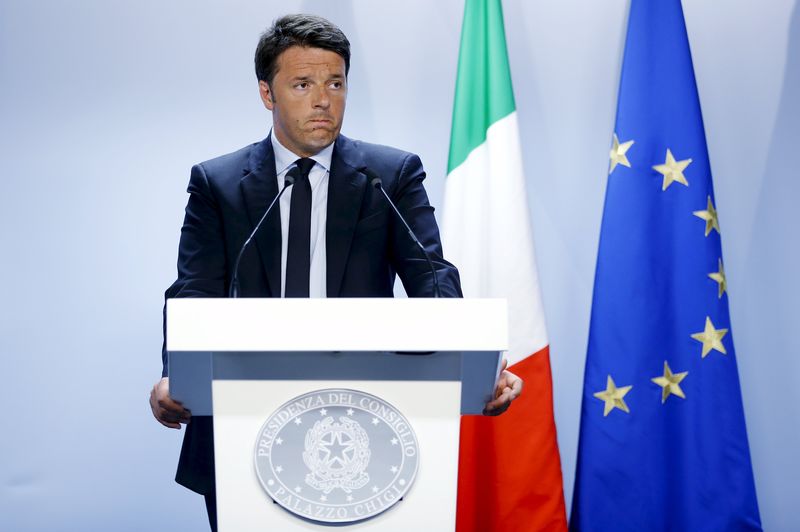By Gavin Jones
ROME (Reuters) - Italian Prime Minister Matteo Renzi won the last of three confidence votes on a fiercely contested new electoral law on Thursday, defying opposition parties and dissidents within his own Democratic Party (PD).
The bill, which has been under discussion in parliament for more than a year, is a central part of Renzi's agenda of political and economic reforms.
The confidence motion passed with 342 votes in favour and 15 against. Most opposition lawmakers as well as around 38 PD rebels abstained in protest at both the content of the bill and Renzi's decision to force it through with confidence votes that truncate discussion or amendments.
Renato Brunetta, lower house leader of Silvio Berlusconi's Forza Italia party, accused Renzi of "fascism" in riding rough-shod over the opposition to change the electoral system.
The new electoral law, which would come into effect in July next year, is based on proportional representation but awards a heavy majority to the winning party with the aim of ensuring that a clear victor emerges.
If no party wins 40 percent of the vote in a first round, a run-off ballot is held between the two largest parties to decide which one gets the winner's bonus.
Opponents say that, in tandem with a constitutional reform abolishing the Senate as an elected chamber, it will hand too much power to the largest party and undermine democracy.
They are even more furious about Renzi resorting to confidence motions, which oblige parliament to either vote in favour or bring down the government.
Several opposition parties said on Thursday they would try to organise a popular referendum to repeal the law.
Renzi says the reform is vital to give Italy more stable and efficient government, but it has many critics even among commentators not associated with the opposition parties.
Ferruccio de Bortoli, outgoing director of the mainstream Corriere della Sera, Italy's most influential newspaper, wrote on Thursday that he hoped President Sergio Mattarella would refuse to sign the bill, preventing it becoming law.
Following the three confidence votes on separate articles of the bill, there will be a final vote next Monday to bring the whole package into law. That final vote is not a confidence motion, but could present a greater threat to Renzi's 15-month-old government.
This is because, unlike the confidence votes, it will be held by secret ballot, allowing PD lawmakers who are unhappy with the bill to oppose it without revealing their identity and risking reprisals from their leader.

Renzi has said he will step down if the electoral reform does not pass.
(editing by Kevin Liffey)